Contents
- I. Introduction to Sustainable Beekeeping Practices
- II. Importance of Sustainable Beekeeping
- III. Sustainable Beekeeping Techniques and Methods
- IV. Benefits of Sustainable Beekeeping
- V. Challenges and Solutions in Sustainable Beekeeping
- VI. Implementing Sustainable Beekeeping Practices
- VII. Frequently Asked Questions about Sustainable Beekeeping Practices
- 1. What is sustainable beekeeping?
- 2. Why is sustainable beekeeping important?
- 3. How does sustainable beekeeping differ from conventional methods?
- 4. What are some key principles of sustainable beekeeping?
- 5. How can I support sustainable beekeepers?
- 6. Are there any risks associated with sustainable beekeeping?
- 7. Can anyone become a sustainable beekeeper?
- 8. What are the benefits of sustainable honey production?
- 9. Is organic certification necessary for sustainable beekeeping?
- 10. How can I learn more about sustainable beekeeping practices?
I. Introduction to Sustainable Beekeeping Practices
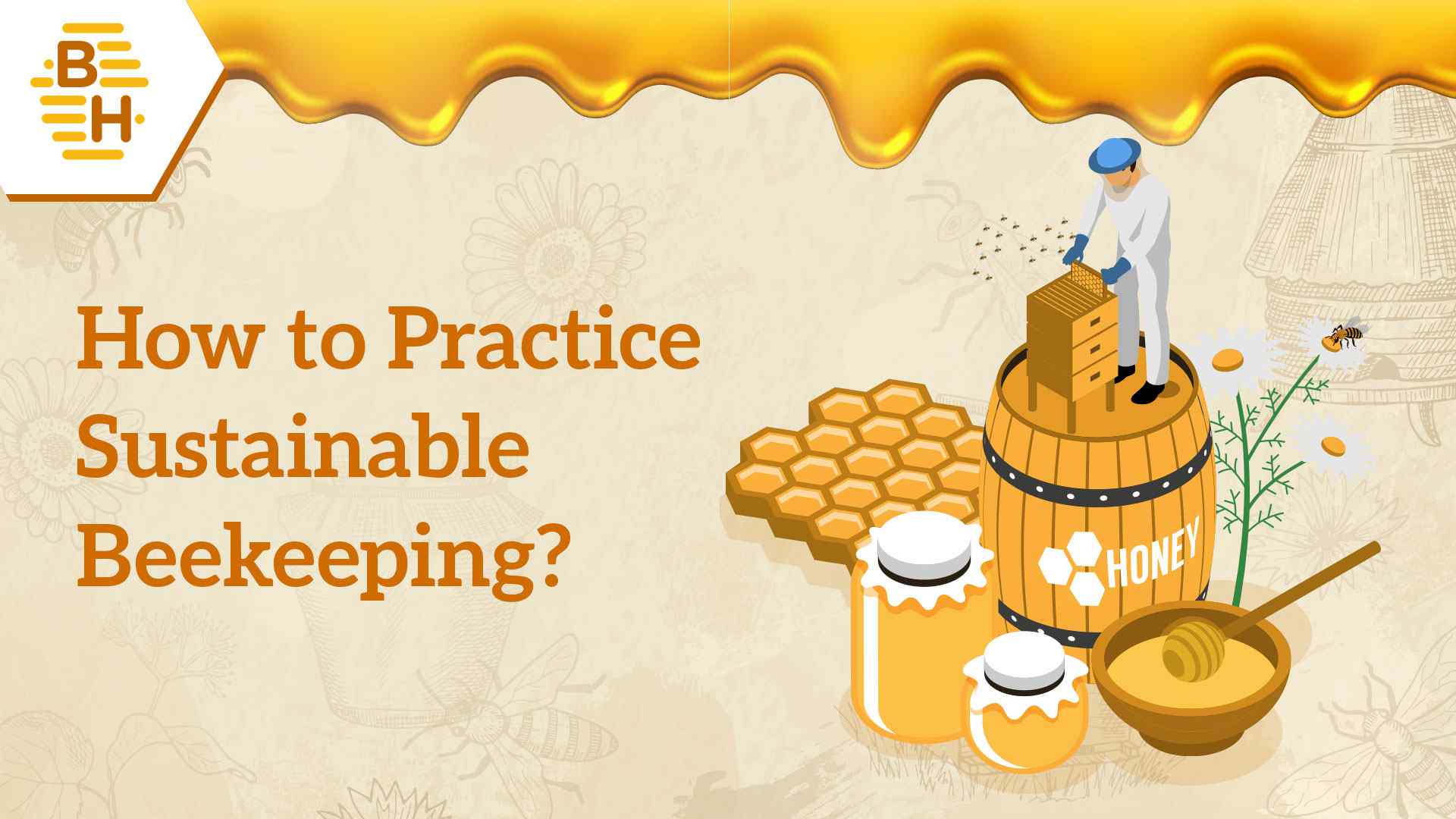
Welcome to the world of sustainable beekeeping! In this article, we will explore the importance of adopting sustainable practices in beekeeping and how it benefits both bees and the environment. Sustainable beekeeping goes beyond just harvesting honey; it focuses on creating a harmonious relationship between humans and bees while preserving their natural habitats.
The Significance of Sustainable Beekeeping
Sustainable beekeeping is crucial for various reasons. First and foremost, bees play a vital role in pollination, which is essential for the reproduction of flowering plants. By adopting sustainable practices, we can ensure that there are enough healthy colonies to support this crucial ecosystem service.
Furthermore, sustainable beekeeping aims to minimize stress on honeybee populations by providing them with optimal living conditions. This includes avoiding the use of harmful pesticides and chemicals that can harm both bees and their hives.
Benefits of Sustainable Beekeeping Practices
1. Conservation of Bee Habitats: Sustainable beekeepers prioritize maintaining diverse landscapes with abundant food sources for bees. They create pollinator-friendly environments by planting native flowers and herbs that provide nectar and pollen throughout the year.
2. Organic Approach: By avoiding synthetic chemicals in hive management, sustainable beekeepers promote organic practices that benefit not only the health of bees but also produce high-quality honey free from contaminants.
Promoting Genetic Diversity
Sustainable beekeepers understand the importance of genetic diversity within honeybee populations. By using locally adapted queen bees or practicing natural queen rearing methods, they help maintain strong colonies capable of surviving environmental challenges such as pests or diseases.
Sustainable Pest Management Strategies
Sustainable pest management revolves around integrated pest management (IPM) techniques. This approach focuses on prevention, monitoring, and targeted treatments to minimize the use of chemical pesticides while effectively managing pests like Varroa mites.
Education and Collaboration
Sustainable beekeepers actively engage in education and collaboration with fellow beekeepers, scientists, and local communities. They share knowledge about sustainable practices, research findings, and encourage others to adopt environmentally friendly methods.
II. Importance of Sustainable Beekeeping
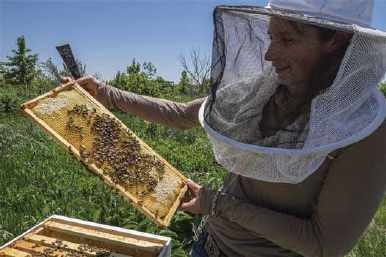
Sustainable beekeeping plays a crucial role in ensuring the health and well-being of honey bees, as well as the overall ecosystem. By adopting sustainable practices, beekeepers can help combat the decline in honey bee populations and promote biodiversity.
Promotes Pollination
One of the primary reasons why sustainable beekeeping is important is its contribution to pollination. Honey bees are responsible for pollinating a significant portion of our food crops, including fruits, vegetables, nuts, and seeds. Without adequate pollination, these plants would struggle to reproduce and produce viable harvests. By providing suitable habitats for bees and maintaining healthy colonies through sustainable practices, we can ensure that they continue to play their vital role in pollination.
Preserves Biodiversity
Honey bees are essential contributors to biodiversity due to their role in pollinating various plant species. As they visit flowers in search of nectar and pollen, they transfer pollen grains from one flower to another, facilitating cross-pollination and genetic diversity among plants. This process helps maintain diverse ecosystems by supporting the growth of different plant species. Sustainable beekeeping practices aim to protect honey bees’ habitats while minimizing exposure to harmful pesticides or chemicals that could disrupt this delicate balance.
Maintains Food Security
The importance of sustainable beekeeping extends beyond ecological benefits; it also has significant implications for food security. With an increasing global population, there is a growing demand for agricultural products. Honey bees’ critical role in crop pollination ensures higher yields and better quality produce. By implementing sustainable practices that prioritize the health and well-being of honey bees, we help safeguard our food supply chain.
Supports Local Economies
Beekeeping activities contribute significantly to local economies through the production of honey, beeswax, and other hive products. Sustainable beekeeping practices that prioritize the welfare of honey bees help maintain thriving colonies, leading to increased honey production. This not only benefits beekeepers but also provides opportunities for local businesses and communities to sell these products locally or even internationally.
Preserves Cultural Heritage
Beekeeping has a rich history deeply intertwined with various cultures around the world. By practicing sustainable beekeeping methods, we ensure the preservation of this cultural heritage for future generations. Additionally, sustainable practices can help protect native bee species from extinction and preserve unique genetic traits that have evolved over centuries.
III. Sustainable Beekeeping Techniques and Methods
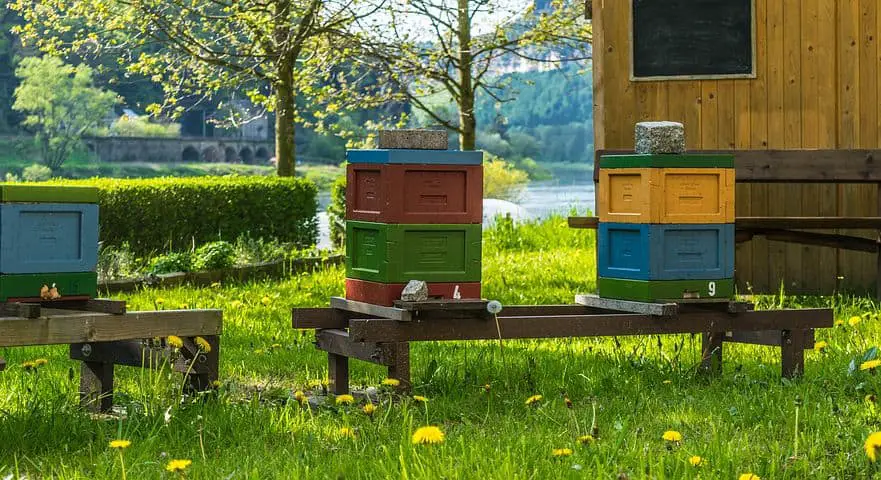
Beekeeping is an ancient practice that has evolved over time to incorporate sustainable techniques and methods. By adopting these practices, beekeepers can ensure the health and well-being of their hives while minimizing negative impacts on the environment. In this section, we will explore some key sustainable beekeeping techniques:
1. Integrated Pest Management (IPM)
Integrated Pest Management is a holistic approach to pest control that focuses on prevention rather than relying solely on chemical treatments. Beekeepers practicing IPM carefully monitor their hives for signs of pests or diseases, implementing proactive measures to minimize their impact.
2. Natural Hive Materials
In sustainable beekeeping, using natural hive materials is crucial for promoting colony health and reducing environmental harm. Instead of synthetic materials, such as plastic or metal, eco-friendly alternatives like wooden hives are preferred as they provide better insulation and ventilation.
3. Organic Beekeeping Practices
Organic beekeeping involves maintaining healthy colonies without the use of synthetic chemicals or antibiotics in hive management. This approach prioritizes natural remedies for disease prevention and treatment, such as essential oils or organic substances.
4. Native Plant Forage
An essential aspect of sustainable beekeeping is ensuring proper nutrition for honeybees by providing diverse native plant species for them to forage from throughout the year. Planting wildflowers, herbs, and trees that bloom at different times helps maintain a continuous source of nectar and pollen.
5. Swarm Capture and Relocation
Sustainable beekeepers practice swarm capture rather than extermination when dealing with honeybee swarms found in unwanted locations like residential areas or buildings. The captured swarms are then relocated to suitable hive locations, preserving the genetic diversity of the population.
6. Bee-Friendly Pesticide Use
To protect bees from harmful pesticides, sustainable beekeepers play a vital role in advocating for the responsible use of pesticides. They promote alternatives to chemical pest control and encourage farmers to adopt bee-friendly practices that minimize pesticide exposure.
7. Continuous Education and Research
Sustainable beekeeping involves staying updated with the latest research and advancements in bee health management. By attending workshops, conferences, and collaborating with scientists, beekeepers can enhance their knowledge and implement effective strategies for sustainable practices.
By incorporating these sustainable techniques into their beekeeping practices, apiarists contribute to the preservation of honeybee populations while supporting biodiversity and safeguarding our natural ecosystems. Sustainable beekeeping not only benefits bees but also plays a crucial role in ensuring food security through pollination services provided by these incredible insects.
IV. Benefits of Sustainable Beekeeping
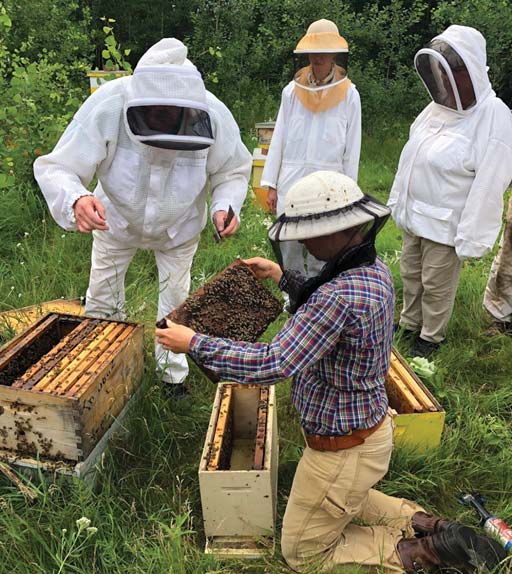
Sustainable beekeeping practices not only have positive impacts on the environment, but they also offer numerous benefits to beekeepers and the wider community. Here are some key advantages of adopting sustainable beekeeping methods:
1. Enhanced Honey Production
By following sustainable practices, such as providing a diverse range of flowering plants and avoiding chemical pesticides, beekeepers can significantly increase honey production. Bees thrive in a healthy and natural environment, resulting in higher quality honey with distinct flavors.
2. Pollination Services
Beekeeping is essential for pollination, which plays a crucial role in maintaining biodiversity and sustaining food production. Sustainable beekeeping practices ensure that bees remain healthy and active pollinators, contributing to improved crop yields and better overall ecosystem health.
3. Preservation of Native Plant Species
Sustainable beekeeping encourages the preservation of native plant species by providing suitable habitats for bees to thrive. As bees visit flowers to collect nectar and pollen, they aid in cross-pollination among plants, helping maintain genetic diversity within plant populations.
4. Conservation of Bee Populations
The decline in global bee populations is a matter of concern due to their vital role in agriculture and ecosystem stability. By practicing sustainable methods that prioritize the well-being of bees, such as minimizing stress factors like transportation or excessive honey harvesting, we can contribute to conserving these important pollinators for future generations.
5. Environmental Sustainability
Sustainable beekeeping promotes environmental sustainability by reducing reliance on harmful chemicals and promoting organic farming practices. This approach helps protect soil health, water quality, and overall ecological balance while supporting biodiversity conservation efforts.
6. Economic Opportunities
Beekeeping can offer economic opportunities, both at a small-scale local level and on a larger commercial scale. By adopting sustainable practices, beekeepers can produce high-quality honey and other hive products that fetch premium prices in the market. Additionally, pollination services provided by beekeepers are in demand by farmers, further enhancing income opportunities.
7. Educational Value
Sustainable beekeeping practices provide educational value to individuals of all ages. By engaging with bees and learning about their intricate societies, people gain a deeper understanding of environmental stewardship, biodiversity conservation, and the interdependence of species within ecosystems.
In conclusion, sustainable beekeeping offers numerous benefits ranging from increased honey production to the preservation of native plant species and conservation of bee populations. By embracing these practices, we not only support our own well-being but also contribute to the health and sustainability of our environment for future generations.
V. Challenges and Solutions in Sustainable Beekeeping
Beekeeping, like any other agricultural practice, is not without its challenges. However, sustainable beekeeping faces unique obstacles that require innovative solutions to ensure the health and well-being of both bees and the environment. In this section, we will explore some of these challenges and discuss potential solutions.
1. Varroa Mites Infestation
One of the biggest challenges in beekeeping is dealing with varroa mites infestation. These tiny parasites attach themselves to honeybees, weakening their immune systems and causing significant damage to colonies. To combat this issue sustainably, beekeepers can implement integrated pest management strategies.
This approach involves using natural methods such as organic acids or essential oils to treat infested hives instead of relying solely on chemical pesticides. Regular monitoring for mite presence and implementing selective breeding programs for resistant bees can also help reduce dependence on chemical treatments.
2. Colony Collapse Disorder (CCD)
Colony Collapse Disorder has been a major concern in recent years as it leads to sudden mass die-offs of honeybee colonies worldwide. The causes behind CCD are still being studied extensively but are believed to be multifactorial, including pesticide exposure, habitat loss, climate change impacts, and poor nutrition.
Sustainable beekeepers play a crucial role in combating CCD by focusing on creating diverse foraging habitats with abundant nectar sources throughout the year. They can also promote organic farming practices that minimize pesticide use while actively participating in research efforts aimed at understanding CCD better.
3. Loss of Biodiversity
The loss of biodiversity poses a significant threat to bees’ survival as they heavily rely on diverse floral resources for sustenance throughout their lifecycle.
Sustainable beekeepers can address this challenge by promoting the planting of native flowering plants, creating bee-friendly gardens and green spaces that support a wide array of pollinators. Additionally, they can collaborate with local conservation organizations to protect and restore natural habitats.
4. Climate Change
The changing climate patterns pose serious risks to bees’ health and their ability to thrive. Extreme temperatures, unpredictable weather events, shifts in flowering seasons are all factors impacting bee populations.
To mitigate these challenges, sustainable beekeepers should focus on adapting their management practices accordingly. This may include providing shade for hives during hot periods or relocating bees to areas with more favorable climates when necessary.
VI. Implementing Sustainable Beekeeping Practices
Implementing sustainable beekeeping practices is crucial for the preservation of honeybee populations and the overall health of our ecosystem. By adopting these practices, beekeepers can contribute to the long-term success and well-being of their colonies while minimizing negative impacts on the environment.
1. Utilizing Organic Management Techniques
One important aspect of sustainable beekeeping is using organic management techniques. This involves avoiding synthetic pesticides, antibiotics, and chemicals in hive maintenance. Instead, natural alternatives like essential oils can be utilized to control mites and other pests without harming bees or contaminating honey.
2. Providing Adequate Forage
A key factor in sustaining healthy bee colonies is ensuring they have access to a diverse range of nectar and pollen sources throughout the year. Beekeepers should strive to create a habitat that offers an abundance of flowering plants by planting wildflowers, trees, and shrubs native to their region. This will provide bees with a continuous supply of nutrition while supporting local biodiversity.
3. Practicing Integrated Pest Management (IPM)
To effectively manage pests without relying solely on chemical treatments, implementing Integrated Pest Management (IPM) strategies is crucial. IPM involves monitoring pest populations regularly, using biological controls such as predator insects or nematodes when necessary, maintaining proper hive ventilation to deter pests like wax moths, and practicing good hygiene by removing old comb regularly.
4. Queen Rearing Techniques
Sustainable beekeepers often prioritize queen rearing techniques that promote genetic diversity within their colonies while maintaining desirable traits such as docility or disease resistance. By selecting queens from strong colonies with proven productivity instead of purchasing commercially bred queens every year, beekeepers can reduce reliance on external sources and improve the overall resilience of their colonies.
5. Hive Design and Construction
The design and construction of hives can also play a role in sustainable beekeeping practices. Using hive designs that emphasize natural behaviors, such as top-bar hives or foundationless frames that allow bees to build comb more freely, promotes colony health and reduces stress. Additionally, using locally sourced materials for hive construction minimizes the carbon footprint associated with transportation.
Implementing sustainable beekeeping practices is essential not only for the well-being of honeybees but also for the health of our planet. By adopting organic techniques, providing ample forage, practicing Integrated Pest Management (IPM), selecting queens wisely, and utilizing appropriate hive designs, beekeepers can contribute to preserving this essential pollinator species while fostering a harmonious relationship between humans and nature.
VII. Frequently Asked Questions about Sustainable Beekeeping Practices
Here are some commonly asked questions about sustainable beekeeping practices:
1. What is sustainable beekeeping?
Sustainable beekeeping refers to the practice of managing honeybee colonies in a way that promotes the long-term health and well-being of both the bees and their environment. It involves adopting methods that minimize stress on bees, reduce chemical inputs, and prioritize their natural behavior.
2. Why is sustainable beekeeping important?
Sustainable beekeeping is crucial because honeybees play a vital role in pollinating crops and wild plants, contributing to biodiversity and food production. By practicing sustainability, we can help protect honeybee populations from decline while ensuring a stable ecosystem for other species.
3. How does sustainable beekeeping differ from conventional methods?
In contrast to conventional practices that may rely heavily on chemical treatments and manipulations, sustainable beekeepers emphasize natural approaches such as providing diverse forage options, reducing pesticide exposure, avoiding over-harvesting of honey, and allowing bees to exhibit their innate behaviors.
4. What are some key principles of sustainable beekeeping?
The key principles include promoting genetic diversity through local or survivor stock bees, avoiding synthetic chemicals like pesticides and antibiotics whenever possible, providing sufficient forage resources throughout the year by planting diverse flowering plants, minimizing hive disturbance during inspections or harvests, and maintaining good hive hygiene.
5. How can I support sustainable beekeepers?
You can support sustainable beekeepers by purchasing locally produced honey or hive products from them directly. Additionally, creating pollinator-friendly habitats in your garden by planting native flowers without using harmful pesticides will provide essential forage sources for bees.
6. Are there any risks associated with sustainable beekeeping?
While sustainable beekeeping methods aim to minimize risks, there can still be challenges such as weather conditions affecting forage availability, pests and diseases that may require natural treatments or interventions, and the need for ongoing education and monitoring to ensure best practices are followed.
7. Can anyone become a sustainable beekeeper?
Absolutely! Sustainable beekeeping is not limited to professionals; even hobbyist beekeepers can adopt these practices. However, it is essential to educate yourself about bees’ needs and consult experienced beekeepers or join local associations to gain knowledge and support.
8. What are the benefits of sustainable honey production?
Sustainable honey production ensures high-quality organic honey that is free from chemical residues while supporting the well-being of bees. It also contributes positively to environmental conservation by promoting biodiversity and maintaining healthy ecosystems.
9. Is organic certification necessary for sustainable beekeeping?
No, organic certification is not mandatory for practicing sustainable beekeeping. While some sustainable apiaries may choose to pursue organic certification, it depends on individual preferences and local regulations.
10. How can I learn more about sustainable beekeeping practices?
To learn more about sustainable beekeeping practices, you can attend workshops or courses offered by local organizations or universities specializing in apiculture. Online resources such as blogs, forums, and books dedicated to sustainability in beekeeping are also valuable sources of information.
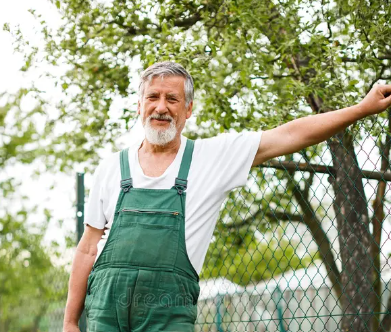
Andrew Boyer is an accomplished individual with a deep-rooted passion for bees and their conservation. Born and raised in a small town in Oregon, Andrew developed an early fascination with nature and the environment. He pursued his education at the prestigious University of Oregon, where he obtained a Bachelor’s degree in Environmental Science with a specialization in Entomology. During his time at university, Andrew conducted extensive research on the behavior and ecological impact of bees, earning him recognition from his peers and professors. His dedication to the field led him to internships at local beekeeping associations, where he honed his skills in hive management and honey production. Andrew’s expertise in beekeeping and his commitment to environmental sustainability make him a valuable asset in the conservation of these vital pollinators.
